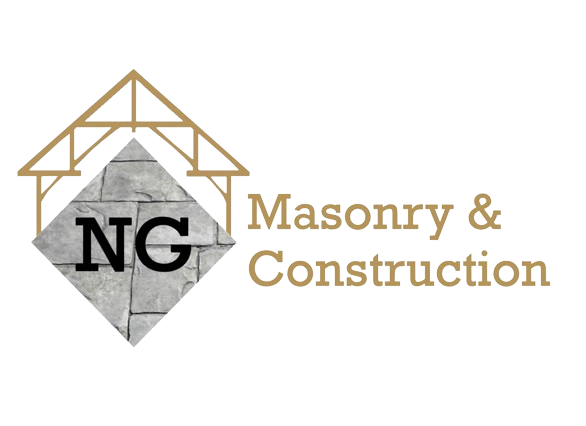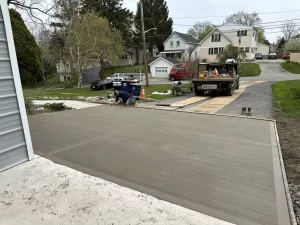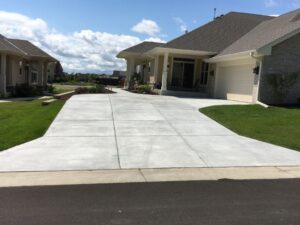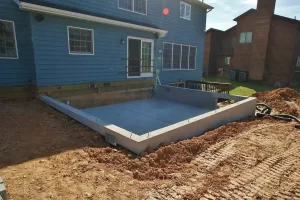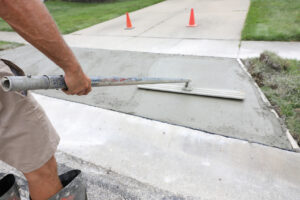A well-maintained driveway enhances the curb appeal of your home and ensures safety and longevity. Driveways are often exposed to heavy traffic, harsh weather conditions, and various chemicals and require regular upkeep to prevent damage and deterioration. Whether you have a concrete, asphalt, brick, or gravel driveway, understanding the essential maintenance steps can save you from costly repairs and extend the life of your driveway.
This comprehensive guide will explore the critical aspects of driveway maintenance, from regular cleaning and sealing to handling heavy traffic and addressing common issues like cracks and stains.
Understanding Your Driveway: Types and Materials
Driveways are a crucial aspect of your home’s exterior, offering both functionality and curb appeal. Understanding the different types of driveway materials can help you make informed decisions about maintenance and repairs. Common driveway materials include concrete, asphalt, brick, and gravel, each with its own set of maintenance requirements and durability levels.
Concrete driveways are popular for their durability and low maintenance needs, while asphalt driveways are favored for their affordability and ease of repair. Brick driveways offer a unique aesthetic appeal but require more upkeep to prevent weeds and shifting. Gravel driveways are the most economical but need regular replenishment and leveling.
Regular Cleaning: The First Step to Maintenance
Regular cleaning is the foundation of driveway maintenance. Dirt, debris, and stains can accumulate over time, leading to a dull appearance and potential damage. Using a pressure washer can effectively remove stubborn stains and restore your driveway's look. For oil stains, apply a mixture of mild detergent and water, scrubbing with a stiff-bristled brush before rinsing thoroughly.
Routine cleaning also helps prevent long-term damage by removing substances that can degrade driveway materials. Make it a habit to clean your driveway at least twice a year and more frequently if you notice a significant buildup of dirt or stains. Regular cleaning not only enhances the aesthetic appeal but also extends the lifespan of your driveway.
Dealing with Stains: Oil, Rust, and More
Stains can mar the appearance of your driveway and, if left untreated, cause lasting damage. Oil stains are particularly common and should be addressed promptly. Apply a mixture of baking soda and water to the stain, scrub with a stiff brush, and rinse thoroughly. Use a commercial rust remover following the manufacturer’s instructions for rust stains.
Regularly inspect your driveway for new stains and address them as soon as possible. Keeping your driveway free from stains enhances its visual appeal and prevents further damage from chemical reactions.
DIY Repairs: When and How to Do It
DIY repairs can be a cost-effective way to maintain your driveway, but it's important to know when and how to do them properly. DIY asphalt repair kits or concrete patching products can fill minor cracks and holes. Follow the instructions carefully to ensure a durable and effective repair.
For larger or more complex repairs, it may be best to consult a professional like NG Masonry & Construction. Knowing your limits and recognizing when to seek expert help can save you time, money, and effort in the long run. When done correctly, DIY repairs are a great way to keep your driveway in optimal condition.
Addressing Cracks: Preventing Further Damage
Cracks are one of the most common issues affecting driveways. They can be caused by a variety of factors, including weather conditions, heavy traffic, and natural settling. NG Masonry & Construction believes that addressing cracks can prevent them from worsening and causing more significant damage. Use a high-quality asphalt crack filler or concrete sealant to fill in the cracks, ensuring a smooth and durable surface.
A liquid crack filler works best for hairline cracks, while wider cracks might require a more robust repair solution. Regular inspections are crucial for identifying and repairing cracks early. This proactive approach helps maintain the integrity of your driveway, avoiding costly repairs down the line.
Protecting Against Water Damage
Water is one of the most damaging elements for driveways, especially during harsh weather conditions. Water can seep into cracks and expand during freezing temperatures, causing significant damage over time. Proper drainage is essential to prevent water pooling and erosion. Ensure your driveway has a slight slope to direct water away from the surface.
Installing gutter spouts and french drains can further protect your driveway from water damage. Regularly inspect and clean these drainage systems to maintain optimal water flow. Taking these precautions helps preserve your driveway's condition and extend its lifespan.
The Importance of Sealing Your Driveway
Applying a sealant to your driveway creates a protective barrier against damaging elements like water, chemicals, and UV rays. Regular sealing is especially beneficial for asphalt driveways, helping to prevent oxidation and wear. Using a high-quality sealant can also improve the driveway's appearance, providing a smooth and glossy finish.
Based on the climate and the amount of traffic it endures, sealing your driveway every two to three years is recommended. Sealing involves cleaning the driveway, filling in any cracks, and applying the sealant in thin, even coats. This regular maintenance can greatly enhance its durability and visual appeal.
- Protection: Sealing shields your driveway from water, chemicals, and UV rays, preventing damage and extending its lifespan.
- Enhanced Appearance: A high-quality sealant gives your driveway a smooth, glossy finish, improving curb appeal.
- Preventing Wear: Regular sealing helps prevent oxidation and deterioration, particularly for asphalt driveways.
- Routine Maintenance: Sealing every two to three years ensures long-lasting durability and aesthetic appeal.
Handling Heavy Traffic and Vehicles
Driveways must withstand the weight of vehicles, which can cause wear and tear over time. Parking heavy vehicles in the same spot can lead to depressions and cracks. Distribute the weight by parking in different areas and avoid parking heavy machinery or equipment on your driveway for extended periods.
For driveways that experience heavy traffic, consider using more durable materials like concrete or high-quality asphalt mixes. Regular maintenance and prompt repairs are crucial to managing the effects of heavy use and ensuring the longevity of your driveway.
The Cost of Driveway Maintenance
Understanding the costs associated with driveway maintenance can help you budget and plan accordingly. Routine cleaning and sealing are relatively inexpensive, while more extensive repairs and replacements can be costly. Regular maintenance helps prevent major repairs, ultimately saving you money in the long run.
Investing in high-quality materials and professional services when necessary can ensure your driveway remains in excellent condition. Weigh the costs and benefits of different maintenance options to determine the best approach for your driveway.
Enhancing Curb Appeal with Driveway Maintenance
A well-maintained driveway significantly enhances the curb appeal of your home. Regular maintenance not only keeps your driveway in good condition but also contributes to the overall aesthetic of your property. Clean, seal, and repair your driveway regularly to ensure it looks its best.
In addition to routine maintenance, consider adding decorative elements like driveway edging or incorporating different materials for a unique look. These enhancements can increase the value of your property and make a positive impression on visitors and potential buyers.
Achieving a Long-Lasting Driveway
In conclusion, achieving a long-lasting driveway requires regular maintenance, prompt repairs, and proper preparation for harsh weather conditions. By understanding the different types of driveway materials and their specific needs, you can implement effective maintenance strategies that keep your driveway in optimal condition.
Routine cleaning, sealing, and addressing minor damages early are key steps in preserving your driveway's functionality and appearance. Whether you handle maintenance tasks yourself or hire professionals, staying proactive about driveway care will ensure it remains a durable and attractive part of your home for years to come.
